Hair is an incredibly important part of our identity.
The hair that grows on our heads, faces, and bodies can project to the world a lot about who we are.
But did you know it can also project a great deal about what is going on inside our bodies?
Since the hair follicles on our face, head, and body are directly linked to our cells and hormones, they change as our body does.
This makes hair a great indicator of our health and internal structure, just like our teeth and even our eyes.
Even our scalp, which houses all of the hair follicles on our head can be sending you warnings signs about your body's health and hydration, depending on how happy or irritated it appears!
Check out our list of common hair and scalp occurrences; because they could be a warning sign to a something bigger going on in your body!
What Exactly Is Hair Anyway?
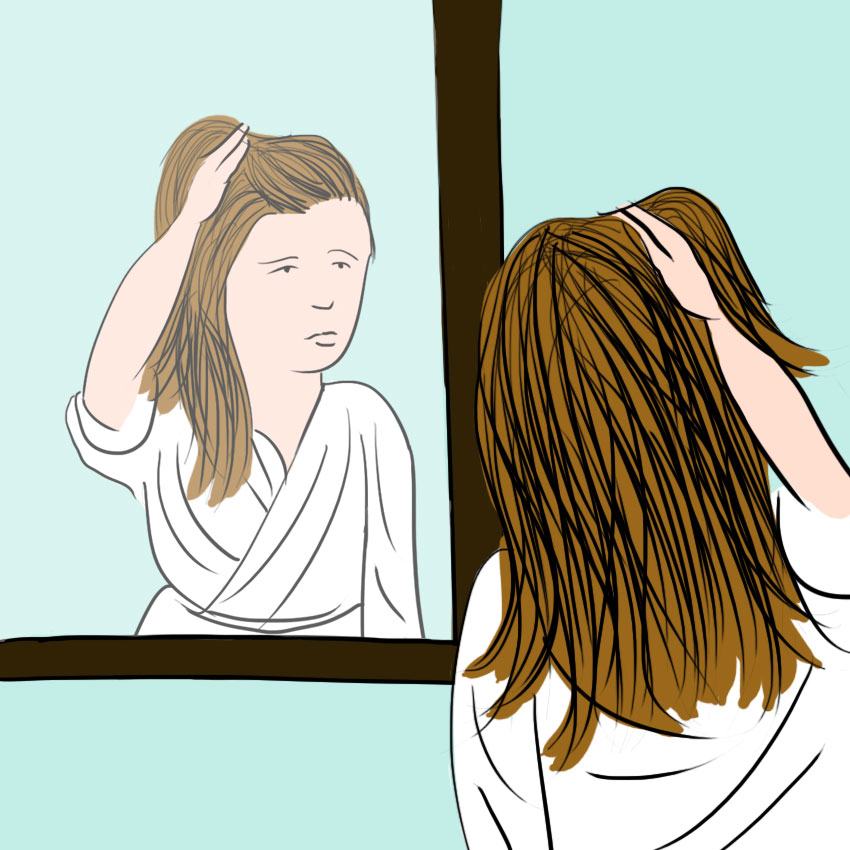
Your hair is made out of a protein called keratin.
At the hair's follicle, which anchors the strands into your head, there is a bulb where cells grow and divide to make it longer.
Blood and hormones determine your hair's growth, structure and color, which is why no two heads of hair are the same.
How Are Hair Follicles Connected To My Health?
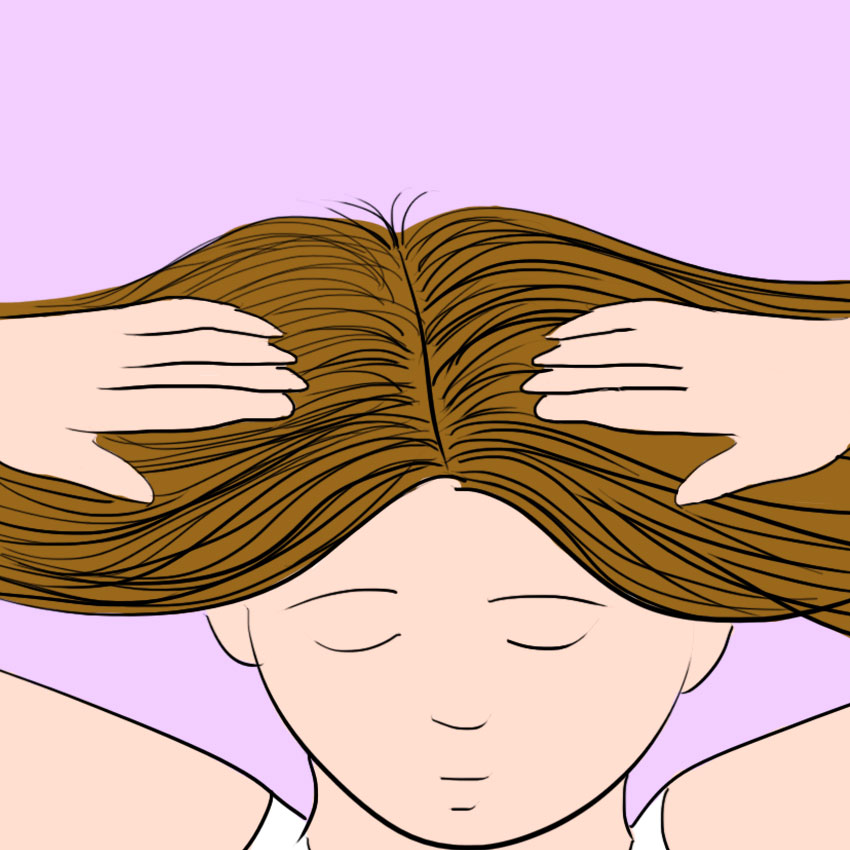
Since your hair follicles grow according to your cells and blood, any changes in your circulatory system can effect how it usually looks and feels.
When one part of your body changes, it can drastically affect other's although they may not appear to be connect, so paying attention to external changes can give you a warning to what may be going on inside.
And since your scalp, which houses all of these fickle follicles, has pores just like the rest of your body, it can also flare up and become imbalanced if not properly cared for.
What Are My Hair And Scalp Trying To Tell Me?1.) Brittle Hair: Hormonal Change
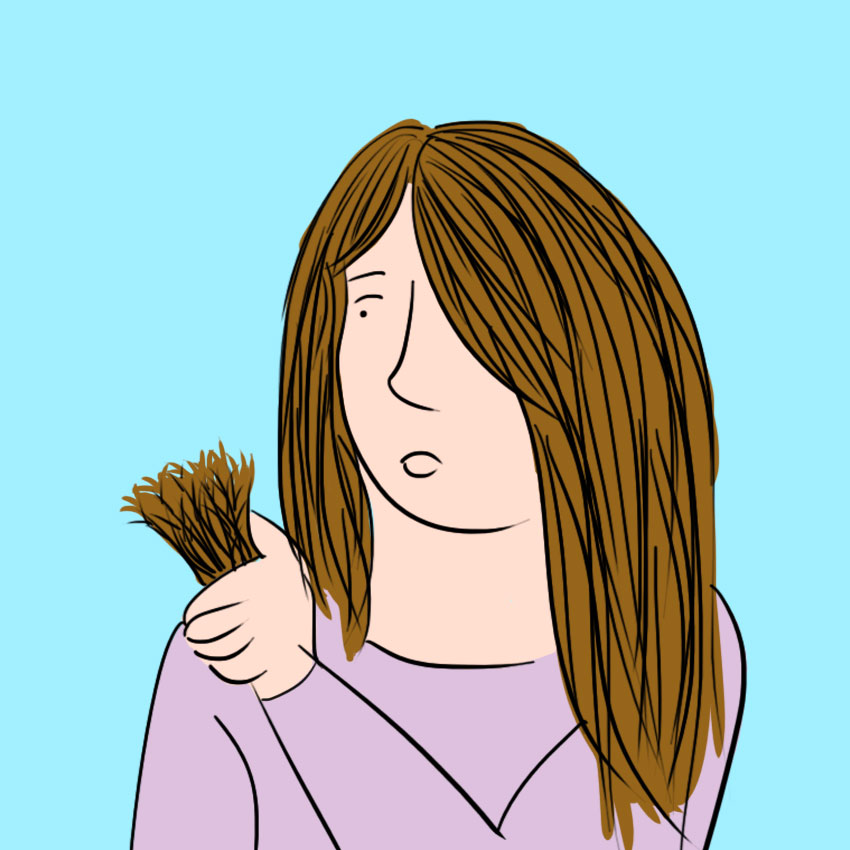
If you find that your hair is feeling dryer, though no changes in your routine have taken place, it could be caused by changes in your hormones.
Hair can become brittle for a number of reasons like dry weather, shampoo, and too much styling with hot tools.
But changes in hormones from birth control pills, pregnancy, and menopause can also cause it to become course.
2.) Greying Hair: Stress
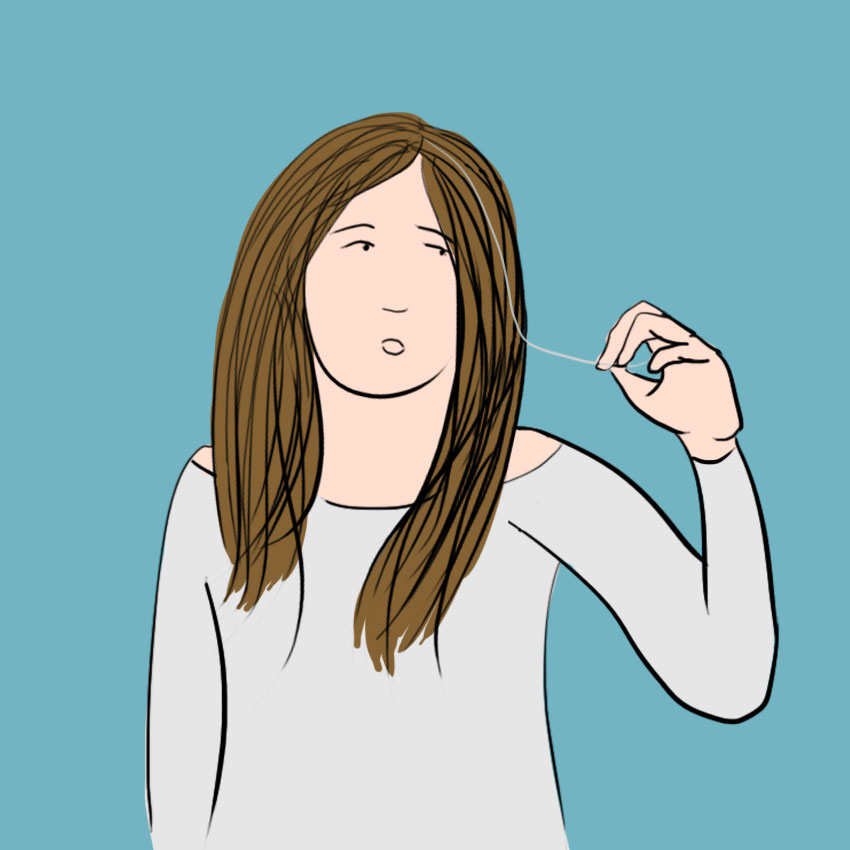
Generally, greying hair is a completely normal change that occurs as we age.
Cells known as melanocytes, which give hair its color, tend to disappear when we get older, causing it to grow without any pigment at all.
Theories exist that stress causes grey hair, though there is very little solid evidence.
But vitiligo and alopecia aerate, which affect pigmentation cells, can potentially affect hair color, as well as syndromes that accelerate aging like Werner syndrome.
3.) Thinning Hair:
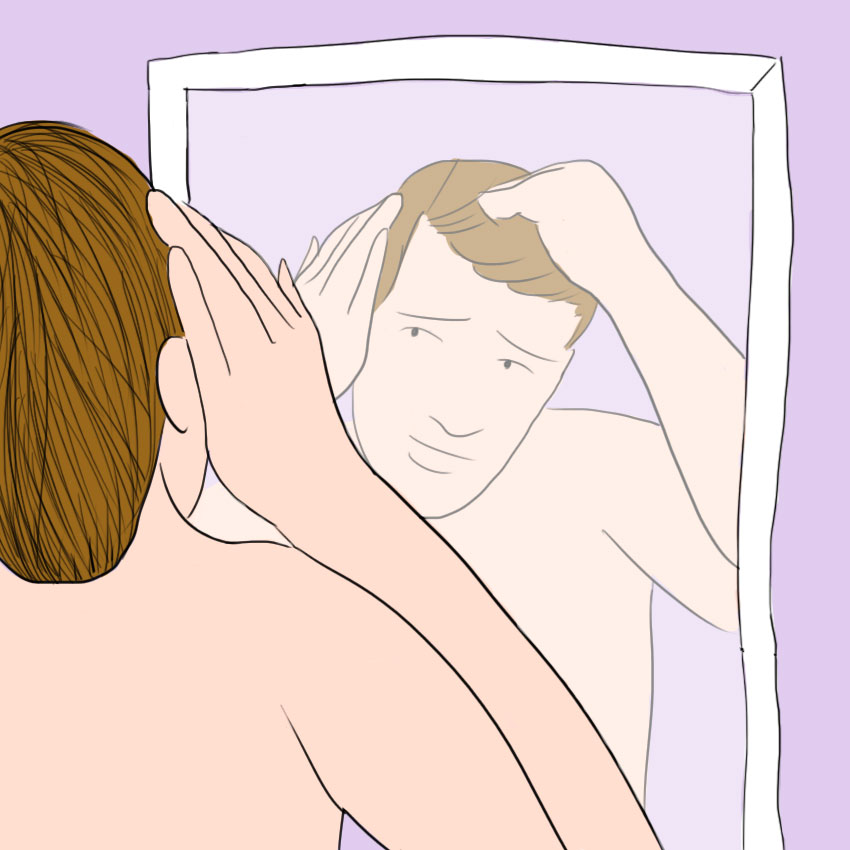
It is also totally natural for you to lose as much as 100 strands of hair per day, but if your are finding excess strands on your pillow case or in your clothes, you may be experiencing excess hair loss.
Balding is also a natural occurrence as we age, especially if it is genetically frequent in family members.
But WebMD states that other medical conditions could lead to you to lose your hair, like thyroid disorders and anemia.
Rapid weight loss can also cause your hair to fall out.
4.) Dandruff:
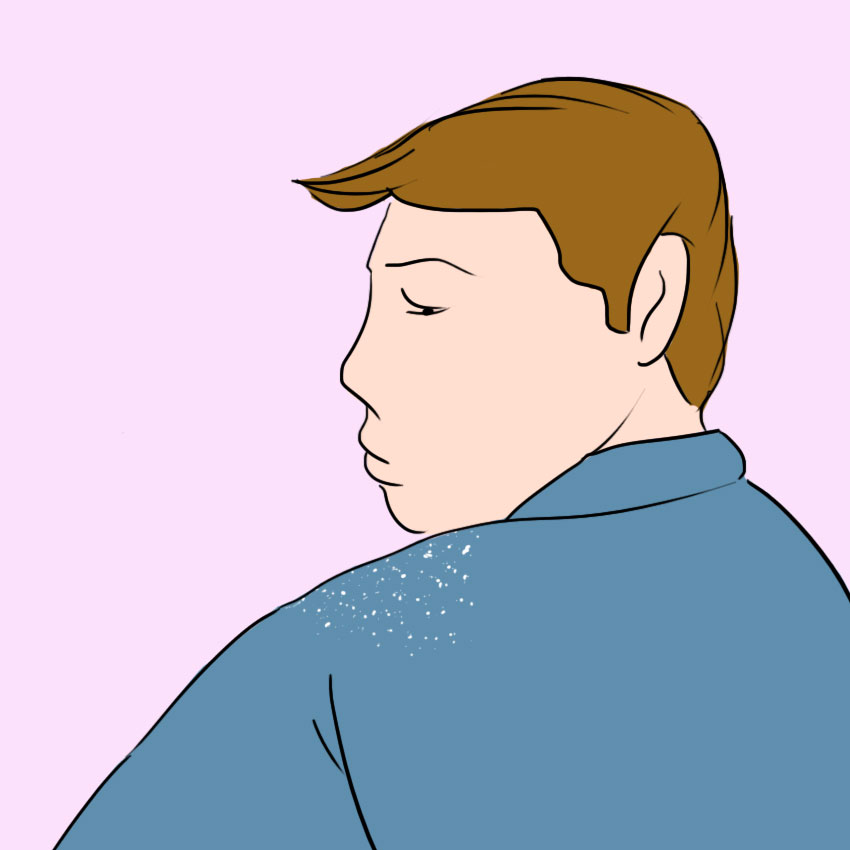
Dandruff is caused by either a dry or super oily scalp and results in little white flakes of skin that fall onto your shoulders.
But there are many aspects of your health that can add to your scalp's unrest like hormones (again), a lack of vitamin B, stress, and changes in the weather.
The dandruff can also be a sign of seborrheic dermatitis which is a type of eczema that affects to scalp.
Situation #6: Excess Hair
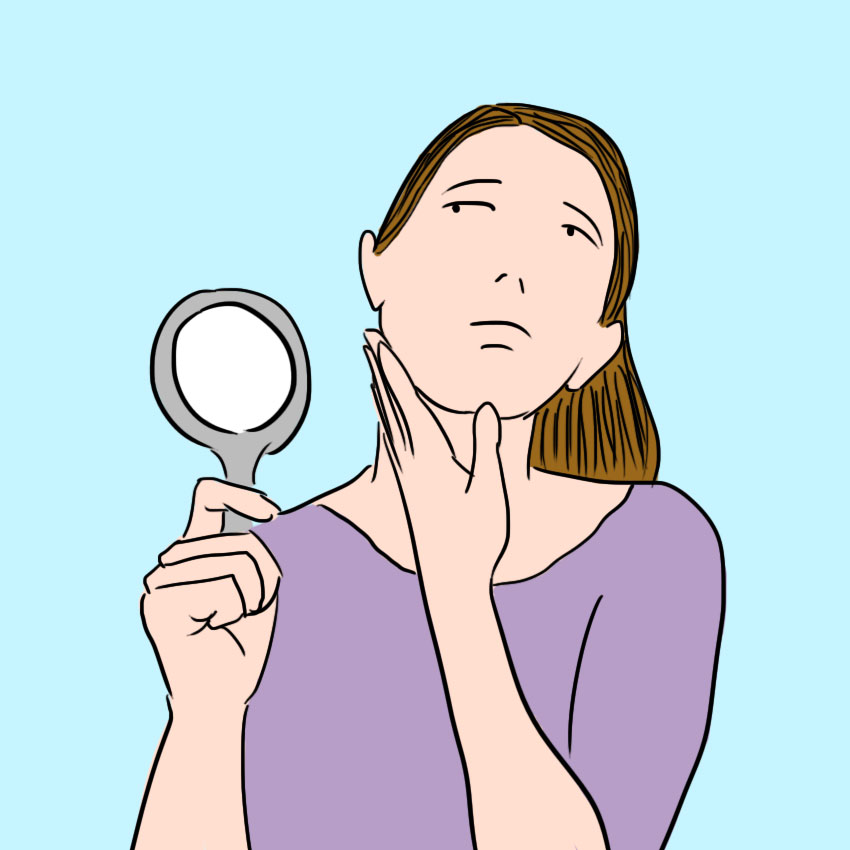
If men start getting hair on their face— it is usually a cause for celebration, or a sign that it's time to shave.
But for women, facial hair could mean a more serious shift in hormones.
Polycystic ovarian syndrome or PCOS is a common cause of male hormone overproduction, which can cause dark, course chin whiskers.
If you are noticing hair on your face that is darker and thicker than your average peach fuzz, you might want to consult your doctor.
Situation #7: Itchy Scalp
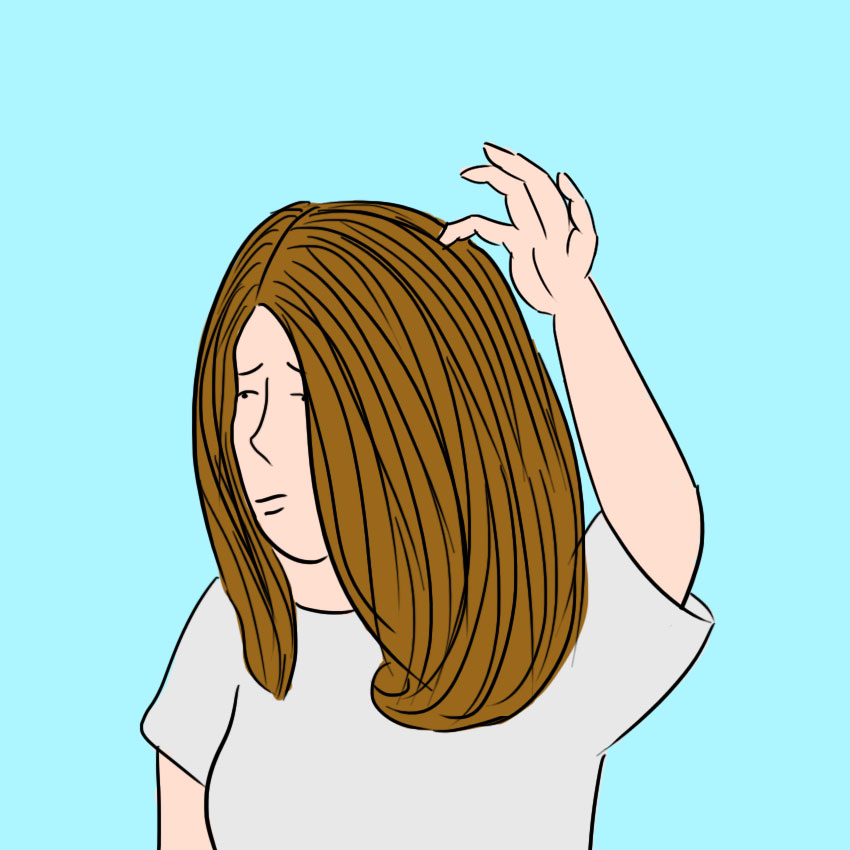
And itchy scalp may be due to overly dry or oily skin on your head; which can lead to peeling, burning, and dandruff.
Along with the aforementioned eczema, an itchy scalp may be caused by scalp psoriasis, or a fungus called malassezia.
Fortunately, there are many topical treatments that can be used to treat a dry scalp, along with a well-balanced diet.
Situation #8: Lightening Color
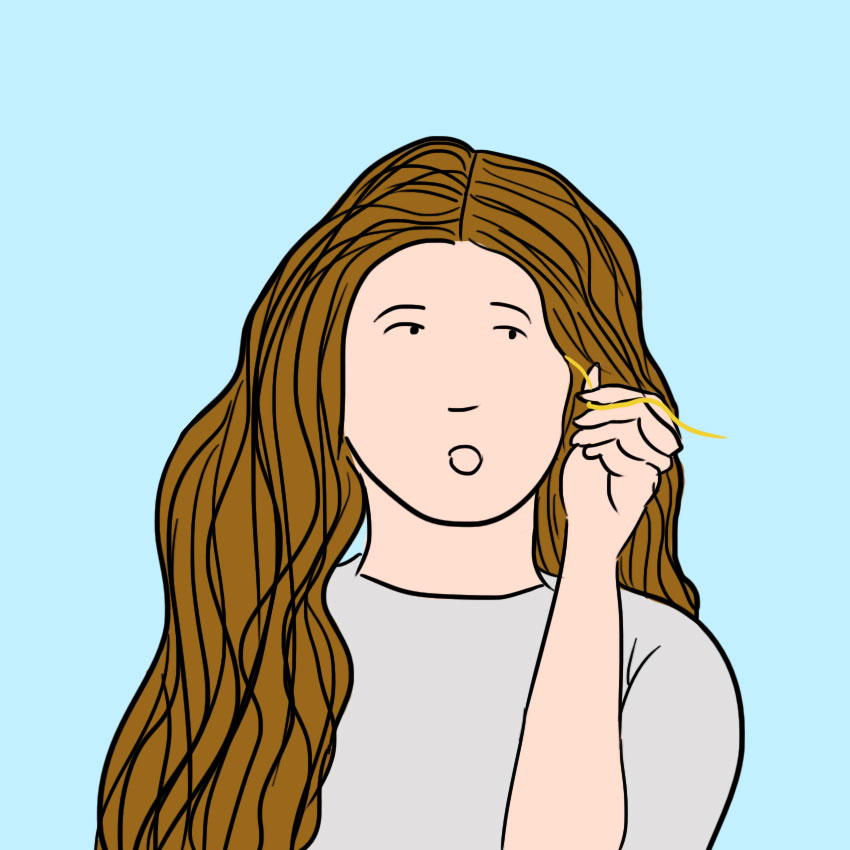
If it not uncommon for children to experience a change or darkening of hair color as they age.
Any change in hair color after then can likely be attributed to achromotrichia, which is the aforementioned melanin-producing cells ceasing to produce pigments.
While this generally makes hair go from dark to grey, instances occur where hair's pigment lightesn to a different color prior to greying
Your hair is rooted (get it?) in your body's cells, circulatory system, and hormones, so the changes to your tresses can give you a very vivid indication of the changes or problems lurking within.
If you love your locks, whether they are straight, curly, frizzy, grey or multicolored, make sure to SHARE with friends and family on Facebook.




